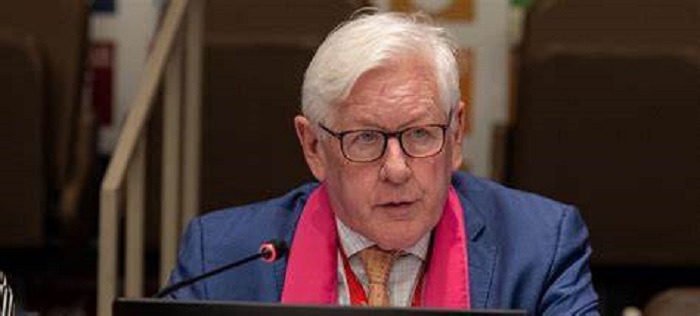Partnerships give the ability to multiply impact globally and amplifies individual efforts to make them collective ones, says Mr. Bob Rae, President of the UN’s Economic and Social Council (ECOSOC).

Rae made these assertions on Wednesday, February 5, during the 2025 ECOSOC Partnership Forum monitored virtually.
The forum focused on the theme, “Advancing sustainable, inclusive, science and evidence-based solutions for the 2030 Agenda for Sustainable Development and its Sustainable Development Goals for leaving no one behind.”
Rae noted that everyone had an important role to play, big or small, in order to give life to the commitments made.
According to him, the Pact for the Future, as well as the SDG Political Declaration of 2023 has given opportunities to define a common vision for multilateral action going forward.
“If we want to go further and make our achievements truly sustainable, we can only do it if we move forward in the spirit of solidarity.
“We owe it to ourselves to recognise that we have already made some progress with SDGs, especially with SDG 3 – Good Health and Well Being.”
This progress, he said, happened because of strong partnerships.
He highlighted successes made in the global fight against AIDS, tuberculosis and malaria.
“We’ve been able to mobilise over 65 billion dollars, we’ve saved more than 50 million lives across 100 countries since 2002 and we’ve done it by putting our best efforts to work.
“These diseases are being overcome, and we will achieve more success as we go forward by applying the same formula.
“That formula is people working together and harnessing finance in the interest of the public good.
“As we forge collaboration across sectors, and while leveraging the strengths that we share, we can amplify the impact, we can drive progress, and we can ensure that no one is left behind,” Rae said.
Mr Guy Bernard Ryder, UN Under-Secretary-General for Policy, Executive Office of the Secretary-General (EOSG), said partnerships were about building bridges, fostering collaboration, and creating opportunities that extend across boundaries.
He said in this time of crises, diverse coalitions are critical, adding that from climate change to conflict, pandemics and economic instability, no single actor could address these challenges alone.
Ryder noted that the pact for the future was not just a commitment framework but was a real call to action for dynamic partnerships that leverage expertise across sectors and across geographies.
“We must draw on and include faith-based organisations which provide essential outreach and services to indigenous peoples, and local communities whose knowledge is critical for environmental sustainability, and academic and scientific communities advancing evidence-based policy making.
“Today’s circumstances demand that we rethink how we build partnerships, so that we shift from simple aspiration to concrete impact,” Ryder said.
According to him, partnerships are not just about collaboration, they’re about co-creation, so that resources, knowledge and networks can be mobilised to overcome obstacles and drive concrete systemic change.
He noted that though the road to 2030 is steep but with strong innovative partnerships, bold actions and shared determination success remains within reach.
By Busayo Onijala
